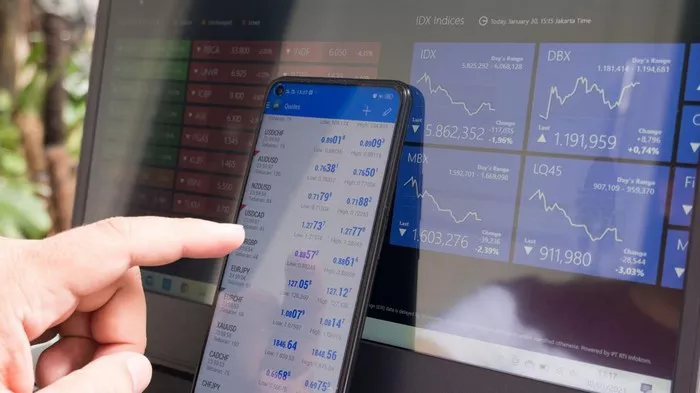In the realm of Islamic finance, where adherence to Shari’ah principles is paramount, investors often grapple with the ethical implications of various financial instruments. Perpetual futures, with their continuous nature and unique characteristics, have sparked debates within the Muslim community regarding their permissibility. In this article, we will delve into the question: Are perpetual futures halal or haram? The exploration will involve an in-depth analysis of Islamic finance principles, the features of perpetual futures, and the perspectives of scholars to shed light on the ethical considerations surrounding this financial instrument.
Understanding Islamic Finance Principles
Islamic finance operates within the framework of Shari’ah, the Islamic legal and ethical system derived from the Quran and the teachings of Prophet Muhammad (peace be upon him). Key principles include the prohibition of Riba (usury or interest), avoidance of Gharar (excessive uncertainty), adherence to ethical and moral values, and promotion of risk-sharing. These principles aim to create a financial system that is just, equitable, and aligns with the values outlined in Islamic teachings.
The Nature of Perpetual Futures
Perpetual futures represent a distinctive form of financial derivative, offering continuous trading opportunities without fixed expiration dates. In perpetual futures contracts, the buyer and seller agree to exchange an underlying asset at a predetermined price, but unlike traditional futures contracts, there is no specific maturity or expiry date. This continuous structure raises questions about the compatibility of perpetual futures with Islamic finance principles.
Riba-Free Investing: A Pillar of Islamic Finance
The prohibition of Riba is a fundamental tenet of Islamic finance. Riba refers to the charging or receiving of interest, considered exploitative and unjust in Islam. In the context of perpetual futures, where leverage is often involved, the potential presence of interest raises concerns. Muslims seeking to invest in perpetual futures must scrutinize the financing arrangements associated with leveraged positions to ensure compliance with Riba-free principles.
See Also: What is the easiest futures to trade?
The Challenge of Gharar in Perpetual Futures
Islamic finance also prohibits transactions that involve excessive uncertainty or ambiguity, commonly referred to as Gharar. The nature of perpetual futures, characterized by the continuous and open-ended nature of trading, raises questions about the level of uncertainty and speculation involved. Scholars and investors must carefully assess whether perpetual futures contracts expose participants to unacceptable levels of Gharar, a consideration that significantly influences the halal or haram classification.
Spot Transactions vs. Perpetual Futures
To assess the permissibility of perpetual futures in Islam, it’s crucial to differentiate between spot transactions and perpetual futures contracts. Spot transactions involve the immediate exchange of goods or assets at the current market price, adhering more closely to Islamic finance principles. Perpetual futures, on the other hand, introduce an element of uncertainty related to future commitments, especially as the exchange occurs at an undetermined future date based on agreed-upon terms.
The Role of Leverage in Perpetual Futures
Leverage, a common feature in perpetual futures trading, allows investors to control larger positions with a smaller upfront investment. While leverage can amplify potential returns, it also introduces a level of risk and raises concerns about the potential involvement of interest. Muslims contemplating perpetual futures investments must meticulously examine the financing arrangements associated with leveraged positions to ensure compliance with Riba-free principles.
Islamic Scholars’ Perspectives on Perpetual Futures
The perspectives of Islamic scholars play a pivotal role in determining the halal or haram status of perpetual futures. Scholars knowledgeable in both Islamic jurisprudence and finance are tasked with issuing Fatwas (religious rulings) on financial matters. The opinions on perpetual futures may vary, with some scholars arguing that the continuous and open-ended nature of these contracts raises ethical concerns, while others may focus on the structuring of contracts to mitigate risks.
Sharia-Compliant Alternatives and Innovations
Recognizing the need for Sharia-compliant investment options, financial institutions and trading platforms have introduced innovative alternatives. Some platforms offer Sharia-compliant trading accounts or Islamic indices that adhere to ethical principles. Investors seeking halal alternatives may explore these options to align their investment activities with Islamic finance principles while avoiding the complexities associated with perpetual futures.
Educational Initiatives and Financial Literacy
Educational initiatives play a crucial role in empowering Muslims with knowledge about Islamic finance principles and ethical investment options. Institutions and organizations dedicated to Islamic finance education provide resources, courses, and seminars that enable individuals to make informed decisions within the parameters of Shari’ah. Enhancing financial literacy among Muslims contributes to a more conscious and responsible approach to investment choices.
The Importance of Due Diligence
Regardless of the halal or haram classification, the importance of due diligence cannot be overstated. Muslims considering perpetual futures investments must thoroughly research the terms and conditions of specific contracts, evaluate the underlying assets, and seek guidance from qualified Islamic finance scholars. Transparency in financial transactions, a commitment to ethical investing, and continuous education are crucial components of making informed and ethical investment decisions.
Ongoing Debates and Evolving Perspectives
The question of whether perpetual futures are halal or haram is subject to ongoing debates within the Islamic finance community. As financial markets evolve and new investment instruments emerge, scholars continue to engage in discussions and issue Fatwas to provide guidance on the compatibility of these instruments with Islamic principles. The dynamic nature of the financial landscape underscores the need for continuous dialogue and adaptation within the Islamic finance sphere.
Conclusion
In conclusion, determining whether perpetual futures are halal or haram requires a nuanced exploration of Islamic finance principles, the unique features of perpetual futures, and the perspectives of scholars. The prohibition of Riba and Gharar, combined with the potential involvement of leverage and speculation, raises ethical considerations for Muslims contemplating perpetual futures investments. While scholars may differ in their views on the permissibility of perpetual futures contracts, the importance of due diligence, ethical investing, and ongoing education remains paramount for Muslims navigating the complexities of financial markets within the framework of Shari’ah.


